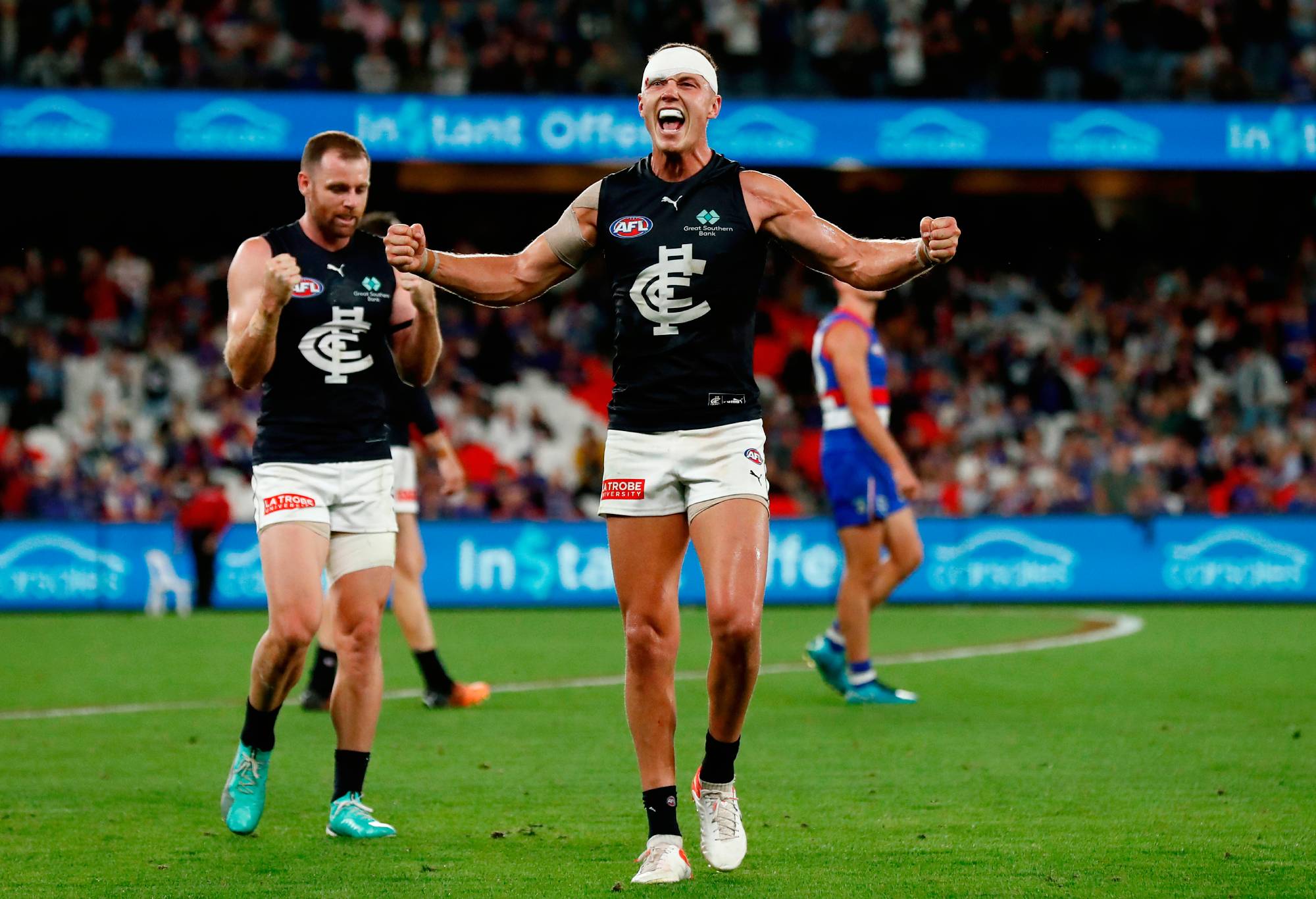AFL News: 'Given it my all' - Crows great announces retirement, big-money Blue 'not hard enough'
Former Adelaide captain Rory Sloane has been forced into immediate retirement by the threat of further eye damage. Sloane, 34, had a second bout…
Concussion was the hot topic of discussion entering Round 1, mainly due to the developing class action legal proceedings involving former disgruntled AFL and AFLW players.
They are suing the league for allegedly breaching their duty of care. Now, the discussion appears to have gained even more momentum heading into Round 2, with three separate reports in regard to high contact occurring last weekend.
Kysaiah Pickett and Shane McAdam’s bumps were both viciously brutal and occurred while the opponent had possession of the ball, meaning tackling was an option. Pickett has accepted his two week ban, which is a slap on the wrist. McAdam has been sent directly to the tribunal.
The bumps were very similar yet the players were punished differently due to the different outcomes. Bailey Smith looked to have escaped injury while Jacob Wehr struggled to get up. It’s hard to understand why the league wants to focus their punishment based on the damage done. That fails to punish players appropriately, like Pickett, who launched into a vulnerable player and instead bases the outcome on the arbitrary nature of how a player reacts to the hit.
Lance Franklin’s bump occurred while he was competing for possession of the ball along with opponent Sam Collins and appeared more accidental then intentional. It should still be noted though that Franklin has a history of high bumps and that the AFL has incentive to keep his suspension to a minimum due to the audience he attracts.
One week does appear to be the correct punishment for this act in isolation, however, should his poor record warrant further financial punishment or a lengthier suspension?

Is Buddy Franklin treated the same as other AFL players? (Photo by Jono Searle/AFL Photos/via Getty Images)
Clearly the AFL tribunal process is failing to punish and rehabilitate players effectively. Last season, Patrick Cripps laid a devastating hit on Callum Ah Chee which went unpunished. Cripps was offered a two week ban for the hit, which he and Carlton contested over a week long saga that resulted in Cripps eventually having the charge over-turned due to a technical error of law.
It was a massive blunder from the AFL to let a player go unpunished for a high hit to the head which is exactly what the industry is trying to deter.
It also had similarities to Pickett and McAdam’s bumps, as all three players launched into the opponent turning their bodies into a missile. This makes the potential for injury significantly higher as all of a player’s body mass is being thrust into the unfortunate opponent, rather than a defensive action in Franklin’s incident, as he braced for contact.
In a similar contact sport, ice hockey, leaving your feet while delivering a bump or a check, is considered charging. When a charging check occurs to the head, the player is usually punished with a five minute major penalty and misconduct, which means they are ejected from the game, like a red card in soccer.

Patrick Cripps was responsible for one of the most controversial moments of 2022. (Photo by Darrian Traynor / Getty Images)
Their team is left to play a four on five scenario for five minutes which in theory, should put the opponent in position to win the game purely off the penalty. The AFL has no current system in place to punish players during the match, with the exception of a free kick and a 50-metre penalty. Ah Chee and the Brisbane Lions weren’t even given a free kick for the Cripps incident.
The irony of that outcome was that Cripps later went on to win the Brownlow Medal, awarded to the best and fairest player in the entire competition. A player who is suspended is ineligible to win the award. Cripps had a phenomenal 2022 and ultimately solidified it with a dominating individual performance against Collingwood in the final round to win the award by one vote ahead of Lachie Neale.
In a convoluted and divisive system of law that has consistently failed to punish players for their actions, we need change and urgently.